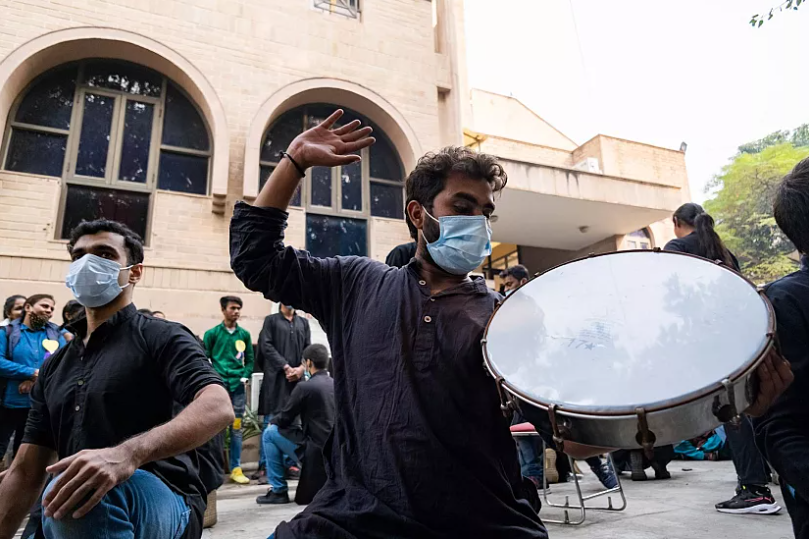Street Performers Raising Awareness on Social Issues in India
Social Issues Social Inequalities and exclusionPosted by NewAdmin on 2025-01-24 09:47:09 |
Share: Facebook | Twitter | Whatsapp | Linkedin Visits: 29

"Nukkad natak," a form of street theatre, has become a powerful medium to address pressing social issues in India. With its roots deeply embedded in the nation's cultural history, this art form has evolved into a dynamic tool for activism, especially in recent decades. Through live performances on the streets, actors capture the attention of passersby, using drama, humor, music, and political satire to provoke thought and spark conversation about vital social concerns.
In the bustling streets of New Delhi, large crowds gather to watch a group of street actors from Sukhmanch Theatre. These performances are more than just entertainment; they are a means of raising awareness about issues like gender inequality, child marriage, and human trafficking. The members of Sukhmanch Theatre perform in public spaces, often breaking down barriers between the audience and the performers. "From a multi-starred hotel in Gurgaon to the slums of Seelampur, we have performed everywhere," says actor Gaurav Dubey, emphasizing the inclusive nature of their shows.
The power of street theatre lies in its ability to engage directly with the audience. "Sometimes something comes up in the middle of the 'nukkad,' so we pause, do a light discussion in between, and then start again," explains Shilpi Marwaha, the founder of Sukhmanch Theatre. This dynamic interaction fosters a deeper connection, allowing the actors to address sensitive topics and engage the audience in meaningful dialogue.
Despite the occasional pushback, such as accusations of "spoiling girls" during performances, street theatre has created a space for the marginalized and voiceless to express themselves. Divyakshi Jain, an actor in the group, notes, "Nukkad natak is a participatory process, which allows for the inclusion of diverse voices." It provides an opportunity for people to confront entrenched social norms and question longstanding beliefs.
Sukhmanch Theatre's mission is clear: to create social change through activism. By adjusting their performances to suit different settings and contexts, they aim to reach as many people as possible, hoping that even one person’s change in perspective can lead to a ripple effect throughout society. In this way, street theatre becomes not just a form of entertainment, but a powerful agent for social transformation in India
Search
Categories
Recent News
- Hyderabad's Digital Safety Townhall: Unveiling Cyber Scams
- Hyderabad's Drug-Free New Year's Eve: A City's Vigilant Stand
- Mainpuri Murder: Taunts Turn Fatal in UP
- Political Firestorm: Rahul Gandhi's "Traitor" Accusation Sparks BJP Outrage
- Delhi Police Uncover Radical Links in Protester Arrests
- From Hobby to Thriving Business: The T-Shirt Startup's Success Story
- Rajasthan's Ram Katha U-Turn: Teachers Recalled from Religious Event
- Earth's Atmosphere: A Cosmic Balancing Act
Popular News
- Navigating IPO Market Dynamics Amid Volatility and Regulatory Changes
- Massive Worldwide Microsoft Outage Disrupts Multiple Sectors
- Panjapur Bus Stand to Reshape TNSTC Routes
- తెలుగుదేశం పార్టీ - పేదరికాన్ని నిర్మూలించడంలో వాగ్దానం
- Universities Embrace Remote Learning Technologies Amidst Ongoing Pandemic